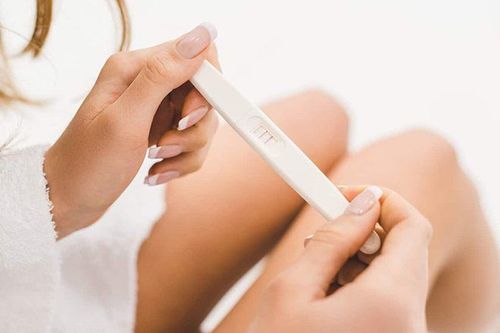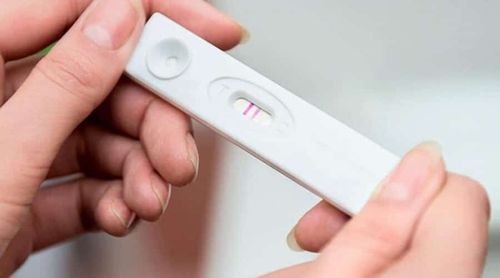This is an automatically translated article.
The article was professionally consulted with Master, Doctor Pham Thi Thuy Nhung - Head of Laboratory Department - Laboratory Department - Vinmec Hai Phong International General Hospital.The lupus anticoagulant is an antiphospholipid antibody that has been implicated in excessive blood clotting that causes arterial or venous thrombosis, and has an effect on blood clotting in vitro.
1. What is lupus anticoagulant?
The lupus anticoagulant (LA) antibody is an antiphospholipid antibody that interferes with blood clotting in vitro by prolonging clotting time, but is associated with excessive coagulation leading to venous or arterial thrombosis. vessels in the body.Lupus anticoagulant antibodies are one of the signs of a disorder in the body's production of antibodies against phospholipids. Lupus anticoagulant antibodies, along with other phospholipid antibodies, can form small blood clots that can lead to pregnancy complications, including miscarriage. In some people who have had multiple miscarriages or blood clots but often have no symptoms of lupus anticoagulant antibodies.
Antiphospholipid syndrome is one of the causes of recurrent miscarriages (≥ 3 times). On the other hand, about 20% of women with recurrent miscarriages are diagnosed with immunological causes, most commonly due to antiphospholipid syndrome in pregnant women. Antiphospholipid antibodies activate platelets, epithelial cells, and monocytes and thereby mediate coagulation, leading to arterial and venous thrombosis. They also influence the infiltration of trophoblasts, leading to aberrations in placental activity and an increased risk of recurrent miscarriage.

2. Lupus anticoagulant antibody test
When having multiple miscarriages in a row, the doctor will assign the patient to do a number of tests, based on the results of that test to make a diagnosis. Some of the tests include:Partial Thromboplastin time dRVVT or MRVVT test Kaolin plasma clotting time Prothrombin time Pregnant mothers with Antiphospholipid syndrome will test positive for lupus anticoagulant antibodies or anti-beta-microglobulin and anti-cardiolipin antibodies. In addition, there is also a history of thromboembolism or complications during pregnancy such as severe preeclampsia, intrauterine growth restriction, intrauterine stillbirth or recurrent miscarriage. To diagnose this syndrome, it is necessary to perform antiphospholipid syndrome tests, and also include at least one clinical criterion such as recurrent miscarriage, venous thrombosis, signs of thrombocytopenia, etc. .. Positive test result in one of the 3 antiphospholipid antibodies, at least 2 times at approximately 12 weeks apart. In general, there are many challenges in the diagnosis and treatment of these diseases.
In women with lupus anticoagulant antibodies not necessarily systemic lupus erythematosus, commonly known as lupus, although people with lupus may have lupus anticoagulants. Lupus anticoagulant antibodies can occur in people with many types of autoimmune diseases, but they can also occur for no apparent reason. For women diagnosed with antiphospholipid syndrome as a result of positive lupus anticoagulants, treatment with low-dose aspirin or injection of heparin is usually recommended during pregnancy. This treatment can improve your chances of getting pregnant.

Please dial HOTLINE for more information or register for an appointment HERE. Download MyVinmec app to make appointments faster and to manage your bookings easily.














